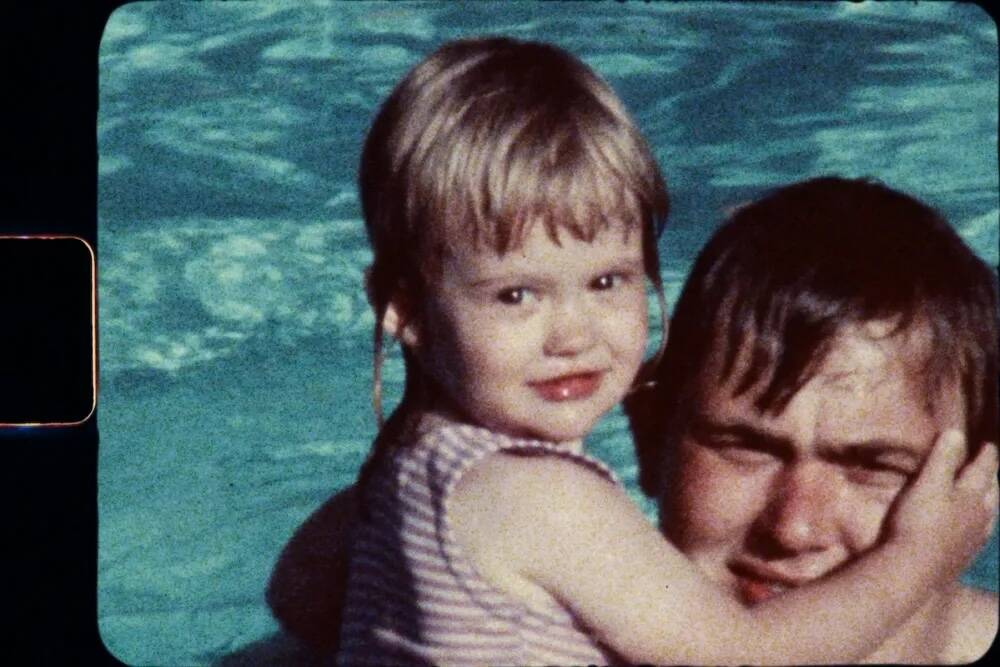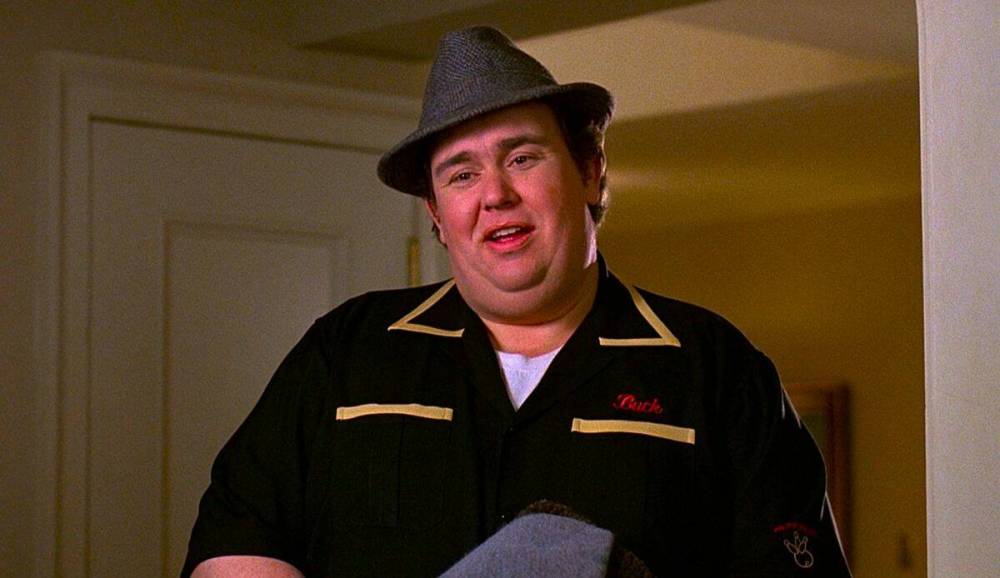A taste of Candy
Director Colin Hanks’ doc a sweet tribute to beloved Canadian comedian
Advertisement
Read this article for free:
or
Already have an account? Log in here »
To continue reading, please subscribe:
Monthly Digital Subscription
$0 for the first 4 weeks*
- Enjoy unlimited reading on winnipegfreepress.com
- Read the E-Edition, our digital replica newspaper
- Access News Break, our award-winning app
- Play interactive puzzles
*No charge for 4 weeks then price increases to the regular rate of $19.00 plus GST every four weeks. Offer available to new and qualified returning subscribers only. Cancel any time.
Monthly Digital Subscription
$4.75/week*
- Enjoy unlimited reading on winnipegfreepress.com
- Read the E-Edition, our digital replica newspaper
- Access News Break, our award-winning app
- Play interactive puzzles
*Billed as $19 plus GST every four weeks. Cancel any time.
To continue reading, please subscribe:
Add Free Press access to your Brandon Sun subscription for only an additional
$1 for the first 4 weeks*
*Your next subscription payment will increase by $1.00 and you will be charged $16.99 plus GST for four weeks. After four weeks, your payment will increase to $23.99 plus GST every four weeks.
Read unlimited articles for free today:
or
Already have an account? Log in here »
“He was a grand man,” Dan Aykroyd says of his colleague and friend John Candy.
Now streaming on Prime Video, this new look at the life and work of the late Canadian comedian is more of a joyful celebration than a hard-hitting documentary.
But why not? John Candy: I Like Me may get a little repetitive and obvious in its overlong runtime, but mostly it’s a sweet, affectionate and appealing tribute that perfectly matches its subject.
“I wish I had bad things to say about him,” Bill Murray jokes in the opening interview, which makes it clear right off the hop that this film, from director Colin Hanks and producer Ryan Reynolds, is not going to be some scandal-mongering, tell-all exposé.
In talking-head interviews with Aykroyd, Catherine O’Hara, Andrea Martin, Eugene Levy, Martin Short, Steve Martin and others, as well as John’s family members and friends, we see a gifted and generous actor, a beloved husband and father, and a proud, loyal Canuck.
More than that, we get a sense of a man who was kind to waiters and drivers and fans and people he would only meet for a few minutes.
Hanks (an actor known for Fargo and Mad Men and director of the Tower Records doc All Things Must Pass) begins with archival footage of Candy’s 1994 memorial service in Toronto and then flashes back to another death, that of Candy’s father, Sidney, who died of a heart attack at age 35, on his son’s fifth birthday.
The film suggests that Candy carried the weight of his absent father with him all his life. That early loss imbued him with a need to take care of everyone around him, often before himself.
It also left him with a sense of inevitability: he believed his own time might be short, a feeling that grew on him before his sudden death at age 43.
Through interviews and clips, we learn about Candy’s Toronto childhood in a crowded, cheerful three-generation home and his early jobs as a department-store salesman.
An old friend recalls asking him, “Why would you leave Eaton’s for acting?” But Candy did, of course, at first scraping by with newspaper ads and touring children’s theatre.
Eventually, his comedy pals tricked him into an audition for Second City, the Toronto offshoot of the Chicago-based comedy troupe. And then things really started, especially when the Canadian Second City morphed into SCTV.

The film dives into John Candy’s earlier years with archival material.
The doc is worth it just for the clips of this fabulously anarchistic and inventive Canadian show. Referred to by one commentator as “SNL’s poor cousin,” it was also the much funnier cousin, partly due to Candy’s work. He was the polka prince Yosh Schmenge, the man-about-town Johnny LaRue, the pseudo-sinister Doctor Tongue with his “3D house of horror.”
Candy also offered inspired comic takes on famous figures from Julia Child to Beaver Cleaver.
As O’Hara points out, “He did distinctly different characters, but John was always there.”
Mostly, that came down to Candy’s core of sweetness.
“When you see his face, you just smile,” suggests SCTV alum Dave Thomas.
Candy’s subsequent break into Hollywood movies allowed him to stretch as a poignant dramatic actor, as we see in the iconic scene from Planes, Trains and Automobiles that gives this film its title.
It also brought the pressures and complications of celebrity, and this essentially sunny documentary begins to take on darker shades.
Candy took on too many projects, and even at the height of this busyness remained convinced he would never be hired again. He endured often intrusive and insensitive media interviews. He began to suffer from anxiety and panic attacks.
Hanks — the son of Tom Hanks, who starred with Candy in the 1984 mermaid comedy Splash — has great access to Candy’s fellow actors, who sit for extended interviews. We get a poignant sense about how old everyone else is now: they have aged while John Candy stays ever young, and you can feel how their memories of him are bound up with a particular time in their lives.

SUPPLIED
Candy’s work spans big-screen hits such as Uncle Buck and Planes, Trains and Automobiles.
We also spend a lot of time with Candy’s wife, Rose, and his adult children Jennifer and Christopher, who offer loving memories of a father gone too soon and a bittersweet sense of how they have tried to recapture him through his movies.
Hanks could have trusted more in the emotional effectiveness of these interviews. Instead, he tends to back them with a bombardment of quick-cut visual images, as if worried his viewers might get bored.
And while some of the movie clips and archival footage is entertaining and illuminating, some seem arbitrary. Just because we’re in the 1960s doesn’t mean we need stock footage of Bob Dylan, student protests and the Vietnam War.
The doc works best when it’s focusing on Candy’s life and work and the meaningful way those things connected. Maybe the last word should come from the 99-year-old Mel Brooks, who directed Candy in 1987’s Spaceballs as a quasi-Chewbacca creature named Barf. (“Half man, half dog — I’m my own best friend,” as Barf says.)
“He was a total actor because he was a total person,” Brooks says of Candy, and I Like Me demonstrates that, beautifully.
alison.gillmor@freepress.mb.ca

Studying at the University of Winnipeg and later Toronto’s York University, Alison Gillmor planned to become an art historian. She ended up catching the journalism bug when she started as visual arts reviewer at the Winnipeg Free Press in 1992.
Our newsroom depends on a growing audience of readers to power our journalism. If you are not a paid reader, please consider becoming a subscriber.
Our newsroom depends on its audience of readers to power our journalism. Thank you for your support.
History
Updated on Wednesday, October 15, 2025 1:21 PM CDT: Corrects reference to memorial service



